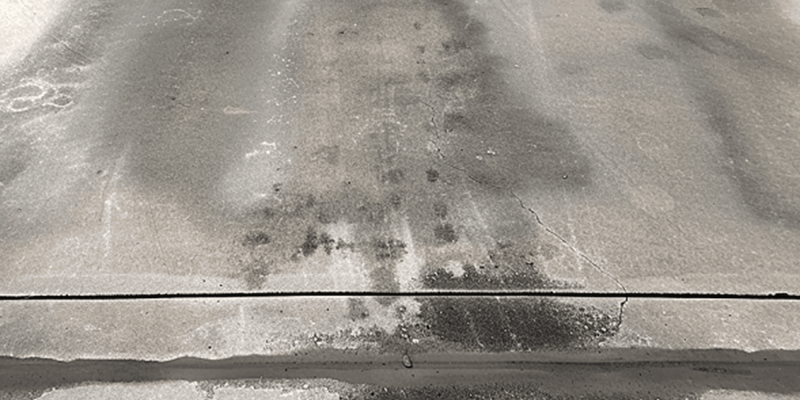Hey there, Springfield homeowners! Keeping your driveway spotless not only boosts your home’s curb appeal but also its value. However, stains from oil, rust, and other sources can be a real headache. Don’t worry, though! We’ve got you covered with everything you need to know about removing those pesky stains and keeping your driveway looking its best. Let’s dive in!
Understanding Different Types of Driveway Stains
Oil and Grease Stains
Oil and grease can drip from cars, leaving dark spots on your driveway. These stains are slippery, making the driveway unsafe, and they’re tough to remove if not treated quickly.
Rust Stains
Rust stains usually come from metal objects left on the driveway for too long, like bicycles or tools. They leave a reddish-brown mark that can be hard to get rid of and can damage the concrete over time.
Organic Stains
Leaves, berries, and other natural materials can leave stains, too. These are usually green or brown and can become permanent if ignored, especially after rain when they start to decompose.
Tire Marks and Other Stubborn Stains
Tire marks from hot tires can get baked into the concrete, and other stubborn stains might come from paint or chemicals. These require special attention to remove completely.
Common Questions:
Can I prevent these stains?
Yes, by regularly cleaning your driveway and avoiding leaving items that can stain for long periods.
Are some stains permanent?
Without proper treatment, some stains can become permanent, so it’s best to address them as soon as possible.
Understanding the type of stain you’re dealing with is the first step in choosing the right removal method. Now that you know what kinds of stains might be tarnishing your driveway, let’s talk about how to prepare for and safely remove them.
Pre-Treatment and Safety Measures
Before you start scrubbing away at your driveway, there are a few things you need to do to make sure you’re safe and that your cleaning efforts will be effective.
Assessing the Stain
Take a good look at the stain to determine its source. This will help you choose the best cleaning method. For example, oil stains need a different approach than rust stains.
Safety Precautions
When using cleaning chemicals, always wear gloves and protective eyewear. Some cleaners can be harmful to your skin or eyes. Also, make sure the area is well-ventilated if you’re using strong chemicals.
Environmental Considerations
Think about the planet, too! There are eco-friendly cleaners that are safe for your yard and won’t harm pets or wildlife. Using natural products like baking soda or vinegar can be effective for some stains and are better for the environment.
Common Questions:
What if I use the wrong cleaner? Using the wrong cleaner can sometimes make the stain worse, so it’s important to identify the stain type first.
Are eco-friendly products really effective? Yes, for many types of stains, eco-friendly products work just as well as chemical cleaners and are safer for you and the environment.
DIY Solutions for Stain Removal
Removing stains from your driveway doesn’t always mean you need to call in the pros or use harsh chemicals. There are several do-it-yourself (DIY) solutions that can effectively tackle most common stains.
Household Products
For oil and grease stains, cat litter or cornstarch can be a first step. Spread it over the stain, let it sit to absorb the oil, then sweep it away. After that, applying a mixture of dish soap and water can help lift the remaining stain. For organic stains, like from leaves or berries, vinegar can be your go-to. Spray it on, let it sit, then scrub and rinse.
Commercial Cleaners
Sometimes, DIY solutions might not be enough, especially for older or tougher stains. In these cases, commercial cleaners designed for concrete and driveway stains can be more effective. Make sure to follow the instructions on the product label carefully to avoid damaging your driveway.
Technique Application
No matter what solution you use, the general approach is the same:
- Apply the cleaner to the stain.
- Let it sit for the recommended time.
- Scrub with a brush to help lift the stain.
- Rinse thoroughly with water.
Common Questions:
How long should I let the cleaner sit? It depends on the cleaner. DIY solutions might need longer to work, while commercial cleaners usually act faster.
Can I use a power washer to rinse the driveway? Yes, a power washer can be very effective in rinsing away cleaners and lifted stains. Just be careful not to damage the concrete with too high a pressure setting.
Using these DIY solutions can make a big difference in the appearance of your driveway. But for some stains, you might need something stronger. Let’s see when it’s time to call in professional help.
Professional Stain Removal Options
There are times when DIY methods just won’t cut it, and that’s when it’s wise to call in professional driveway cleaners. They have the tools and expertise to remove even the most stubborn stains.
When to Call the Professionals
If you’ve tried DIY methods and the stain persists, or if it’s a large, deeply set stain, professional cleaning may be your best bet. Professionals can also assess if the stain has caused any damage to your driveway that needs repair.
Services Offered
Professional cleaners use industrial-grade cleaners and equipment, like power washers at higher pressures and heat settings than available to consumers. They can also apply sealants to protect your driveway after cleaning.
Choosing a Service Provider
Look for a provider with good reviews and experience with driveway cleaning. Ask about their cleaning methods and whether they use eco-friendly options if that’s important to you.
Common Questions:
Is professional cleaning expensive?
The cost can vary, but considering the effectiveness and the prevention of further damage, it can be worth the investment.
How often should I have my driveway professionally cleaned?
It depends on your driveway’s exposure to staining agents and your local climate, but generally, a professional cleaning every one to two years can keep it in top shape.
Whether you tackle driveway stains yourself or hire professionals, the key is not to let those stains set in. Speaking of prevention, let’s look at how you can keep your driveway looking great year-round.
Preventive Measures to Protect Your Driveway
Keeping your driveway stain-free is easier than you might think. With a few preventive measures, you can significantly reduce the likelihood of stains and maintain your driveway’s appearance.
Regular Maintenance
Sweeping your driveway regularly helps remove materials that could stain, like leaves or dirt. Quickly cleaning up spills, especially oil or grease, can prevent them from setting and causing permanent stains.
Sealants and Protective Coatings
Applying a sealant to your concrete driveway can protect it from stains, water damage, and wear. Sealants create a barrier that makes it harder for stains to penetrate the concrete. It’s a good idea to reapply sealant every few years, depending on the product and your driveway’s exposure to the elements.
Immediate Action on Spills
If something spills on your driveway, acting quickly can prevent a stain from forming. For oil and grease, applying an absorbent material right away can capture much of the spill before it soaks in.
Common Questions and Concerns
How often should I reapply sealant?
Every 2-4 years, depending on weather conditions and the amount of vehicle traffic your driveway gets.
Can I apply sealant myself?
Yes, applying sealant is a DIY-friendly project, but make sure to follow the product instructions carefully for the best results.
By taking these preventive steps, you can keep your driveway looking new for years. Now, let’s address some common questions and concerns homeowners have about driveway stains.
Can all stains be removed?
Most stains can be removed or significantly lightened with the right approach. Immediate action and the correct cleaning method are key. However, some stains, if left untreated for too long, might become permanent.
How often should I clean my driveway?
Regular cleaning, such as sweeping and spot cleaning of spills, should be done as needed. A thorough cleaning, including stain removal and possibly professional cleaning, can be done annually or biannually, depending on your driveway’s condition and your local environment.
Are DIY solutions effective for all types of stains?
DIY solutions work well for many types of stains, especially if treated early. However, some stubborn or older stains may require commercial products or professional services for complete removal.
Impact of weather on stain removal and prevention
The weather in Springfield, Illinois, can vary greatly, affecting both stain removal and prevention. For example, freezing and thawing can cause cracks where stains can more easily settle. Sealants can protect against this. Also, cleaning your driveway during dry, warmer weather allows for better application of cleaners and sealants.
Common Questions:
What if a stain won’t come out?
Sometimes, even with the best efforts, a stain might not completely disappear. In these cases, consulting with a professional can offer alternative solutions, like resurfacing.
Do I need special equipment for DIY cleaning?
Basic equipment like a stiff brush, garden hose, or pressure washer (for tougher jobs) is usually sufficient for DIY driveway cleaning.
Conclusion
Keeping your driveway stain-free boosts your home’s curb appeal and maintains its value. With the right knowledge, tools, and a bit of elbow grease, you can tackle most stains yourself. Remember, prevention is key, so regular maintenance and quick action on spills can save you a lot of trouble down the road. Happy cleaning, Springfield homeowners!

